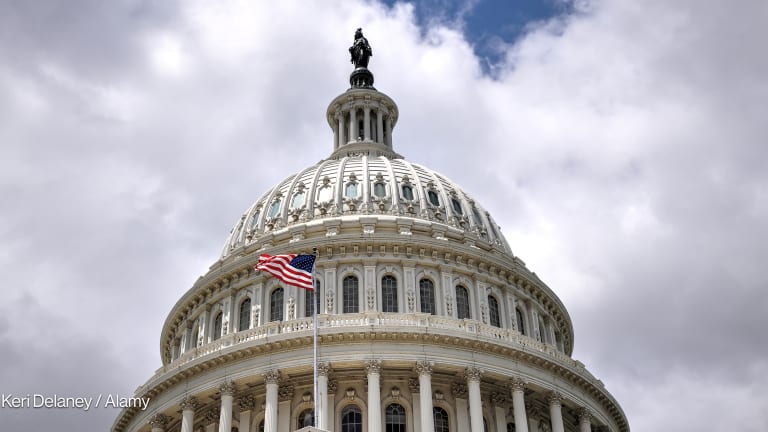
WASHINGTON — The Senate’s fiscal year 2021 state and foreign operations budget bill provides roughly the same amount of funding for aid as last year, though it has a couple of notable differences from the House of Representatives bill — including no emergency COVID-19 funding.
The bill, released by the Senate Committee on Appropriations Tuesday, includes $55.2 billion for state and foreign operations spending, well above President Donald Trump’s request, which would have substantially cut the aid budget and about the same amount that the Senate proposed last year.
House boosts foreign aid funding, adds $10B for COVID-19 response
The U.S. House of Representatives appropriations committee has released its annual funding bill for fiscal year 2021. Here's a breakdown of where funds are going and the details of the COVID-19 response funding that's included.
The funding bill is good for the development community and perhaps even better than what some had expected given discussions earlier this year, one development advocate who asked for anonymity to speak freely, told Devex. Other development experts said that it demonstrates once again that Congress is willing to push back against proposed cuts, but also called for Congress to pass supplemental funding for global COVID-19 response.
The Senate bill provides a slight increase in funding for global health funding above what was enacted in fiscal year 2020 and included a $175 million increase for global health security funding. The House bill proposed $805 million for family planning, while the Senate includes $461 million, which is the most significant difference in the global health budget between the two.
The Senate bill also doesn’t include any funding for the World Health Organization or the U.N. Population Fund, which both get funding in the House proposal, as expected due to the politics around involvement with both institutions during the Trump administration.
The House bill includes about $10 billion in emergency COVID-19 funding, which the Senate bill does not. That didn’t come as a surprise to several development experts. The philosophical view of Senate leadership is that emergency assistance shouldn’t be included in funding bills, so it was never going to be included, the development advocate said.
The advocate said that it doesn’t change the dynamics of trying to find ways to fund the global response. Congress continues to negotiate a supplemental COVID-19 funding bill — a pared-down version which may be considered in the coming weeks, but is not likely to include global funding. And while the Senate didn’t want to violate spending caps or include emergency funding in the bills, the final compromise agreement between the House and Senate could end up with some emergency assistance included in the package, as could future supplemental funding bills, the advocate said.
In prior deals when funding was pared down through negotiations the “end result was not something we were thrilled about as a community,” said Loyce Pace, the president and executive director of the Global Health Council, adding the community needs to continue to push for supplemental funding for the global COVID-19 response. Global health advocates are calling for about $20 billion in emergency appropriations for the response.
“I don’t know how else we can frame it or what else is required to really break through the urgency of now,” she said. “We cannot continue to put off this essential investment.”
The consensus at the moment seems to be that a lot is unclear about how quickly a COVID-19 supplemental bill might move or how quickly the budget process would proceed. While there have been some indications that Congress wants to pass a budget quickly, most of the development advocates Devex spoke to said it’s more likely there will be continuing resolution to buy more time past the Dec. 11 deadline to fund the government, and that decisions could even be pushed into the new year.
Outside of global health, another major difference between the House and Senate proposals is how they chose to fund the U.S. International Development Finance Corporation. The Senate proposed $821 million in funding for the new agency, about what the administration had requested, compared to the House’s $311 million.
The key difference is how much funding each body is willing to provide to underwrite the agency’s equity investments, which several development advocates have been pushing to have scored differently so it wouldn’t require as large an appropriation. At the moment the investments have to be funded like grants, with the expectation of a total loss of the funds.
When word came out earlier this year that DFC might see such a large funding increase it raised concerns from a number of development advocates, who worried that the agency would get a boost in funding at the expense of other development priorities. “This is the exact outcome we were all concerned would happen,” Conor Savoy, the executive director of the Modernizing Foreign Assistance Network, told Devex.








